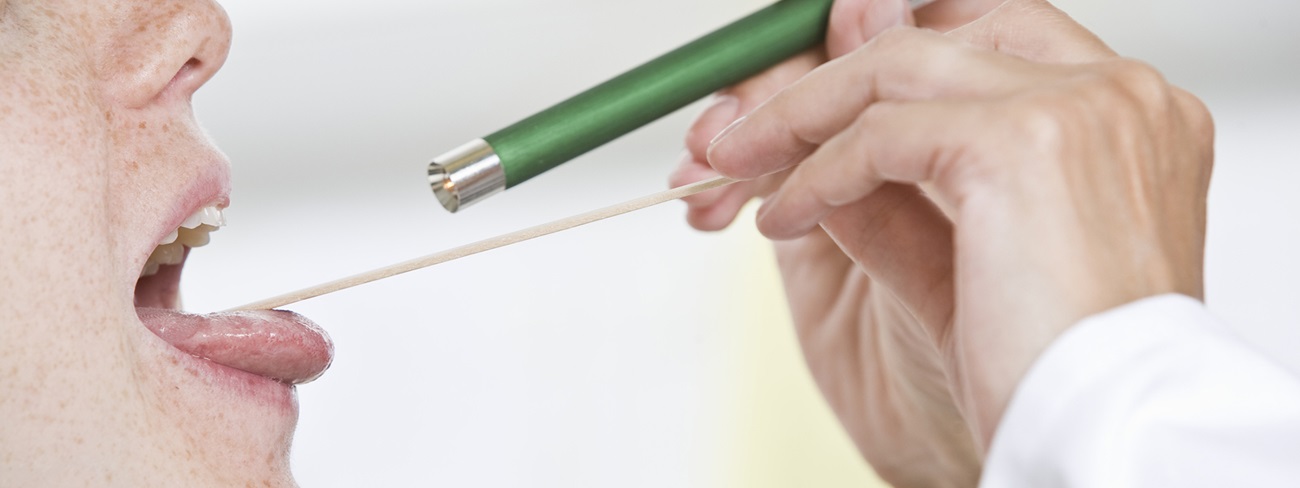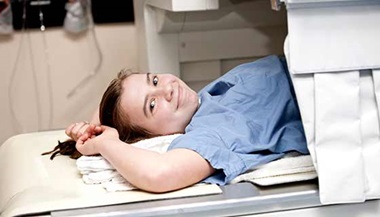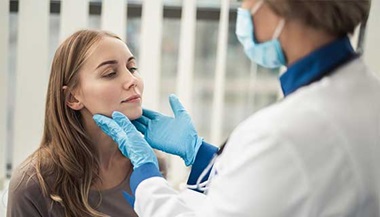Transnasal Esophagoscopy (TNE)
Trans-nasal esophagoscopy, or TNE, is a test that helps your doctor diagnose and treat problems of your esophagus and stomach.
What You Need to Know Transnasal Esophagoscopy (TNE)
- Transnasal esophagoscopy (TNE) is a procedure your doctor can perform in the office while you are awake.
- During TNE, you swallow a thin, flexible tube that is inserted through your nose, into your esophagus and down to your stomach.
- An alternative to some upper endoscopy procedures, transnasal esophagoscopy takes about 15 minutes, and you can return to your normal activities afterward.
What is transnasal esophagoscopy (TNE)?
When you swallow, food and liquid go down a tube called the esophagus to reach your stomach. TNE is an in-office test that your doctor can perform to diagnose a problem with your esophagus or stomach.
TNE involves a doctor inserting a narrow tube into your nose. You swallow the tube, and a light and a tiny camera on the end help your doctor see the esophagus and stomach.
TNE is simple and does not hurt. The doctor applies numbing medication to your nose and throat, and most people tolerate it easily.
Why would a doctor recommend TNE?
Your doctor might recommend TNE if you are experiencing symptoms that suggest a problem with your esophagus or stomach. These symptoms include:
- Difficulty swallowing, or the sensation of food getting stuck (dysphagia)
- A foreign body sensation or feeling a “lump” in the throat (globus sensation)
- Heartburn or regurgitation
- Hoarse voice
- Chronic throat clearing, throat irritation, chronic cough, excess throat mucus and other, similar symptoms
TNE helps your doctor get a look at your esophagus passageway and your stomach opening to see what might be causing your symptoms.
Why do I need transnasal esophagoscopy (TNE)?
If you have symptoms such as chronic cough or swallowing difficulties, there are several tools that can help identify the problem. Your doctor will discuss options with you and recommend tests based on your individual needs.
In some situations when a doctor wants to look at the patient’s esophagus or stomach, TNE can be an alternative to an esophagogastroduodenoscopy (also known as EGD, or upper endoscopy), a more involved procedure that can take longer than TNE and require sedating medication.
TNE can help your doctor find a problem in your esophagus or be part of a treatment. Using TNE, your doctor can collect a sample of tissue (biopsy) from your larynx (voice box), esophagus or stomach to examine under a microscope. The procedure can be used to gently widen a tightened area in the esophagus by inflating a balloon attached to the tube, or to inject medication into parts of the esophagus.
How do I prepare for transnasal esophagoscopy (TNE)?
Getting ready for TNE is easy. Your doctor will review your medications with you, and let you know if you should temporarily stop taking any of them. To ensure your stomach is completely empty, you should not eat or drink anything for four hours before the test.
You will be alert immediately after the procedure and able to drive yourself home and continue your activities.
Transnasal esophagoscopy (TNE) — What happens
- After you sign a release giving your doctor permission to perform transnasal esophagoscopy, he or she will spray the inside of your nose and throat with numbing medicine.
- The doctor will guide the end of the narrow tube into your nose and down your throat as you swallow sips of water.
- The tiny camera on the tube will provide your doctor with a view of the esophagus as the tube moves downward. The doctor will look for conditions that would cause your symptoms.
- If the doctor is using TNE as part of a treatment to address a condition, there might be other steps, such as collecting a specimen of tissue or expanding a tight area of the esophagus so you can swallow more easily.
- Afterward, the doctor will remove the tube and you can resume your activities. You can eat or drink as soon as the numbing medication wears off.
- Your doctor will discuss the findings with you and recommend a treatment plan based on your diagnosis.
What are the side effects and risks of transnasal esophagoscopy (TNE)?
The doctor inflates air into your esophagus during TNE, so you might have some temporary burping afterward. Your nose or throat might be temporarily irritated from the tube. Serious complications, such as bleeding, tearing or other damage to the esophagus or stomach, are very rare.
Swallowing Center

The Johns Hopkins Swallowing Center offers specialized swallowing evaluation, diagnosis and treatment for patients with swallowing disorders. Our multi-specialty team includes laryngologists, speech-language pathologists and other specialists, who work together to provide you with personalized and compassionate care.






